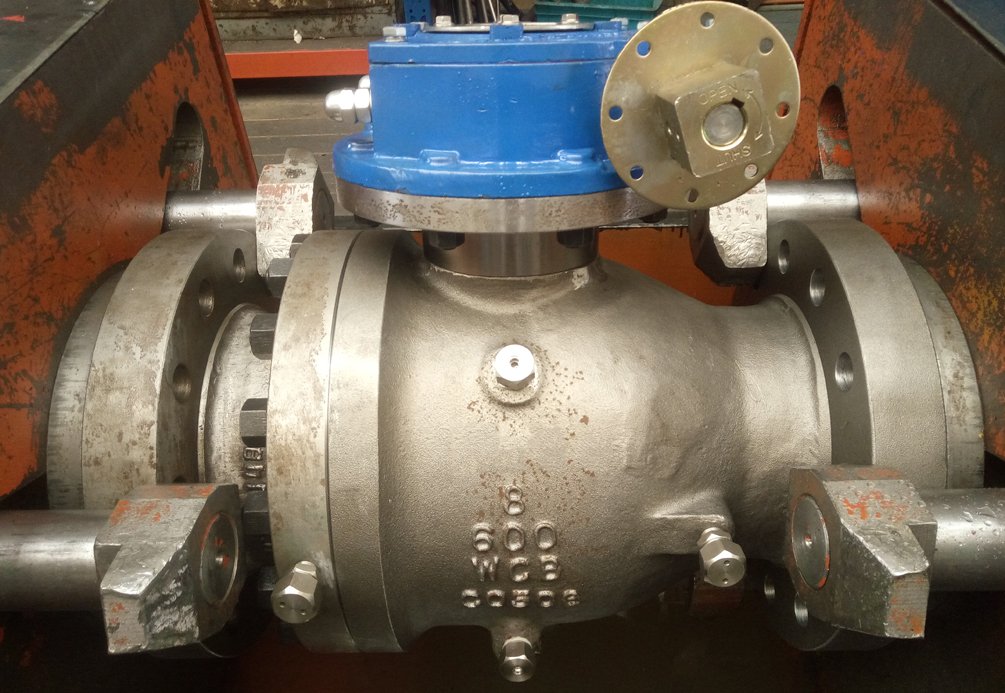Are you looking for high-quality industrial valves that perform exceptionally well? Are you tired of dealing with valve failures and the high costs associated with them? Look no further than API 6D valves. These valves are the Beyoncé of the valve world, and for good reason. In this blog post, we’ll explore 7 reasons why API 6D valves are the top choice for industrial applications.
Why Choose API 6D Valves?
API 6D valves are designed to meet the rigorous demands of the oil and gas industry. They are engineered to withstand extreme temperatures, pressures, and corrosive environments. These valves are also designed to meet strict safety and environmental regulations.
Here are 7 reasons why API 6D valves are the best choice for your industrial valve needs:
1. Rigorous Testing Standards
API 6D valves are subjected to rigorous testing standards to ensure that they meet the demands of the oil and gas industry. These valves undergo hydrostatic & air shell testing, seat testing, and fire testing to ensure that the valves can withstand extreme conditions and operate reliably in the field.
One of the most important testing standards for API 6D valves is hydrostatic shell testing. This test involves filling the valve body with water and pressurizing it to a predetermined level. The valve is then inspected for leaks and other defects. This test ensures that the valve body can withstand the pressures it will encounter in the field.
Another important testing standard for API 6D valves is seat testing. This test involves pressurizing the valve and checking for leaks around the valve seat. The valve is also cycled through its full range of motion to ensure that it operates smoothly and reliably.
Fire testing is also an important testing standard for API 6D valves. This test involves subjecting the valve to high temperatures and flames to ensure that it can withstand fire and prevent the spread of flames.
In addition to these testing standards, API 6D valves must also meet strict dimensional and material requirements. This ensures that the valves are manufactured to a high standard and can operate reliably in the field.
Overall, the rigorous testing standards of API 6D valves ensure that they are designed to withstand extreme conditions and operate reliably in the field. This makes them the top choice for industrial valve applications.

2. High-Quality Materials
API 6D valves are made from high-quality materials, such as carbon steel and stainless steel. These materials are chosen for their durability and resistance to corrosion. They are also designed to withstand extreme temperatures and pressures.
3. Precision Engineering
API 6D valves are designed with precision engineering to ensure that they operate smoothly and reliably. This precision engineering involves careful attention to detail in the design and manufacturing process to ensure that the valves meet the demands of the oil and gas industry.
One important aspect of precision engineering in API 6D valves is the design of the valve body and internal components. The valve body is designed to withstand high pressures and temperatures, and the internal components are designed to provide accurate control of flow and pressure. This requires careful consideration of factors such as material selection, component size and shape, and tolerances.
Another important aspect of precision engineering in API 6D valves is the manufacturing process. The valves are manufactured to strict dimensional and material requirements to ensure that they meet the design specifications. This involves the use of advanced manufacturing techniques such as computer numerical control (CNC) machining, which allows for precise control of component dimensions.
In addition, API 6D valves are also designed to minimize friction and wear. This requires careful consideration of factors such as the materials used for the valve stem and the design of the seat and seal surfaces.
Overall, the precision engineering of API 6D valves ensures that they operate smoothly and reliably in the field. This makes them the top choice for industrial valve applications where precise control of flow and pressure is essential.

4. Versatility
API 6D valves are versatile and can be used in a variety of applications. They are commonly used in oil and gas pipelines, refineries, and chemical plants. They can also be used in water treatment plants and power generation facilities.
5. Low Maintenance
API 6D valves are designed with low maintenance requirements to ensure that they can operate reliably for extended periods without the need for frequent maintenance. This saves you time and money in the long run. There are several features that make API 6D valves low maintenance:
- Simple and Robust Design: API 6D valves are designed with a simple and robust design, which means there are fewer moving parts and components that can fail. This reduces the likelihood of breakdowns or malfunctions, which in turn reduces the need for maintenance.
- High-Quality Materials: API 6D valves are made from high-quality materials that are resistant to wear, corrosion, and other forms of damage. This means they can operate for extended periods without needing to be replaced or repaired.
- Self-Lubricating Components: Some API 6D valves are designed with self-lubricating components, such as bearings and seals, which reduce the need for frequent maintenance and lubrication.
- Easy Access and Service ability: API 6D valves are designed to be easily accessible for service and maintenance, with features such as removable bonnets and easy-to-replace seals and gaskets.
- Rigorous Testing Standards: API 6D valves are subjected to rigorous testing standards during the design and manufacturing process, which ensures that they are reliable and can operate for extended periods without requiring maintenance.
Overall, the low maintenance requirements of API 6D valves make them a preferred choice for industrial valve applications where reliable and low-maintenance operation is essential.
6. Safety
API 6D valves are designed with safety in mind. They are engineered to meet strict safety standards and are designed to prevent leaks and other hazards. This helps to ensure the safety of workers and the environment. The valves are designed to comply with industry regulations and standards, such as the Occupational Safety and Health Administration (OSHA) and the American Petroleum Institute (API), to ensure that they are safe to operate in the field.
7. Environmental Protection
API 6D valves are designed with environmental protection in mind and are subject to strict standards to ensure that they meet regulatory requirements and protect the environment. They are engineered to prevent leaks and other environmental hazards, such as spills and emissions. Here are some of the ways in which API 6D valves are designed to provide environmental protection:
- Leakage Prevention: API 6D valves are designed to prevent leaks, which can lead to environmental damage. The valves are tested to ensure that they provide a tight seal and do not allow any fluid to escape.
- High-Quality Materials: API 6D valves are made from high-quality materials that are resistant to corrosion, wear, and other forms of damage. This ensures that the valves remain reliable and do not contribute to environmental damage.
- Compliance with Regulations: API 6D valves are designed to comply with industry regulations and standards, such as the Environmental Protection Agency (EPA) and the Clean Air Act, to ensure that they do not contribute to environmental damage.
- Environmental Impact Assessments: API 6D valves are subject to environmental impact assessments to ensure that they do not negatively impact the environment.
- Recycling and Disposal: API 6D valves are designed to be recyclable and to minimize waste. They are also designed to be disposed of safely and in an environmentally friendly manner.
Overall, the environmental protection of API 6D valves is an important consideration, and the valves are designed and tested to ensure that they meet regulatory requirements and protect the environment, providing reliable and environmentally friendly operation for industrial valve applications.
More Related Questions
What is API 6D?
API 6D is a specification for pipeline valves used in the oil and gas industry. These valves are designed to meet the rigorous demands of the industry, including extreme temperatures, pressures, and corrosive environments.
What industries use API 6D valves?
API 6D valves are commonly used in the oil and gas industry, including pipelines, refineries, and chemical plants. They can also be used in water treatment plants and power generation facilities.
What are the benefits of using API 6D valves?
API 6D valves offer several benefits, including rigorous testing standards, high-quality materials, precision engineering, versatility, low maintenance, safety, and environmental protection.
How are API 6D valves tested?
API 6D valves are subjected to hydrostatic & air shell testing, seat testing, and fire testing to ensure that they meet the demands of the oil and gas industry.
What are the different types of API 6D valves?
Some of the different types of API 6D valves include ball valves, gate valves, check valves, globe valves, butterfly valves and plug valves.
Conclusion
API 6D valves are the Beyoncé of industrial valves. They offer rigorous testing standards, high-quality materials, precision engineering, versatility, low maintenance, safety, and environmental protection. Whether you’re in the oil and gas industry or another industrial sector, API 6D valves are the top choice for your valve needs. DSNY Valve are a professional API 6D valve manufaturer, feel free to drop us a line.



